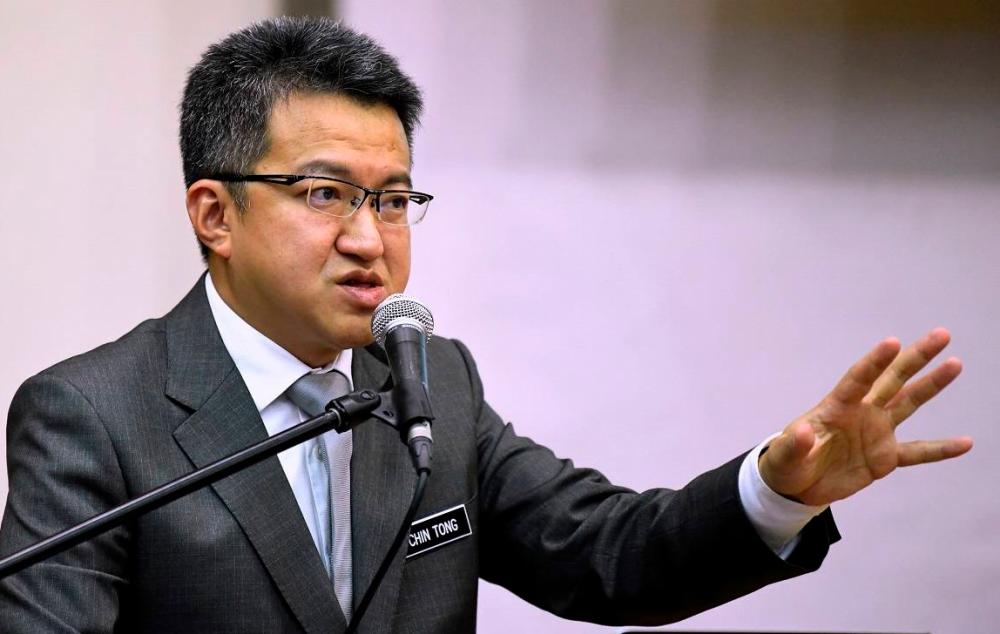KUALA LUMPUR: Malaysia should not be seen as a “Vietnam plus” but rather as “Singapore at a discount”, Deputy Investment, Trade and Industry Minister Liew Chin Tong told investors.
He said Malaysia has strong infrastructure, an English common law framework, decent ports and advantages that make it more similar to Singapore though significantly cheaper in terms of real estate and other costs.
“I say this partly in jest, but partly I’m very serious about it. Knight Frank just released a report one and a half or two months ago that says rental for office buildings in Central Prime Territory Kuala Lumpur costs 15% of rental in CPT Singapore. So it’s an 85% discount,” he said when addressing Rotarians and guests at a Rotary Club talk and question-and-answer session on Monday,
He added that, very often, people say Malaysia is competing with Indonesia or Vietnam, and that Vietnam and Indonesia are overtaking Malaysia.
“Of course, notwithstanding the problems we have, I acknowledge that we have multiple problems. But if you look around in Southeast Asia, Malaysia is unique,” Liew said.
He explained that Malaysia practises an English common law framework, has very good ports and has decent infrastructure.
“Not superb, but compared to neighboring countries, we are not too bad, we are actually much better.
“We just have to reposition ourselves. So I tell friends and investors, do not think of Malaysia as a ‘Vietnam plus’. Malaysia is not the better version of Vietnam or Indonesia. Malaysia is Singapore at a discount,” he said.
Liew acknowledged that one of the main concerns for investors is finding talent in Malaysia. He, however, said Malaysia does not have a talent shortage but a pay problem.
He said: “1.1 million Malaysian passport holders are working in Singapore. Some of them are not employed in high-end jobs. There are university graduates working as garbage collectors, cleaners, and security guards in Singapore. As a nation, we import skilled foreign labour from Bangladesh while exporting Malaysians to Singapore to work as cheap labour.”
On how to change this, Liew said: “Whenever an investor tells me it’s difficult to find talented workers, I say you can find talent from Singapore. Offer Malaysians two-thirds of Singapore’s pay, and if they are not married to Singaporeans or don’t have kids in Singapore schools, many will seriously consider returning.
“Of course, for those married to Singaporeans or with children in Singaporean schools, it’s a difficult decision. But if you ask a 30-year-old engineer working in Penang, and they get an offer from a Singaporean company that matches the two-thirds mark, I’m sure they won’t leave. The challenge is that Malaysian employers are used to paying one-third of Singaporean wages,“ he said.
Liew noted that this is a fundamental challenge requiring a paradigm shift in the economy.
“How do we move to paying two-thirds of Singapore’s wages? It’s difficult for many companies, but now, with an influx of investment, companies are competing for workers. When you compete for workers, you’re prepared to pay more,” he said.
Furthermore, he said, the debate on education and talent in Malaysia is often unproductive.
“Everyone says we don’t have a good education system, etc. But when thinking about talent, don’t just focus on 18-24-year-olds. Talent can come from other sources, like women. Malaysia is a unique and interesting country,” he said.
In terms of university enrolment, he added, public universities currently consist of 65% female students, and across both public and private institutions, women make up 60% of students. The civil service is 57% female, and 42% of leadership positions (Jusa level and above) are held by women.









